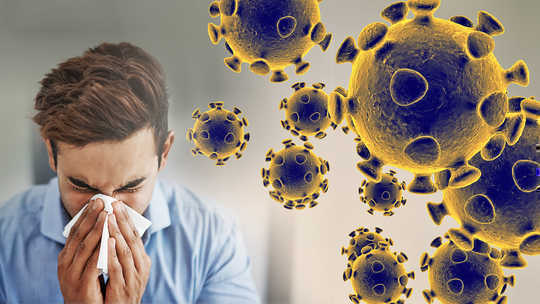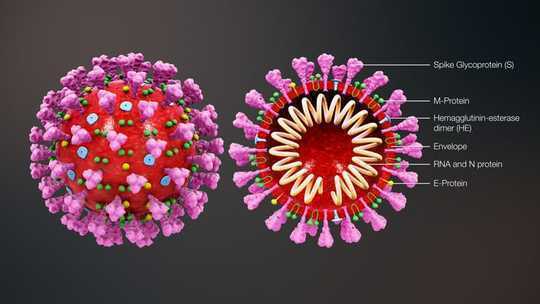
As the coronavirus death toll continues to rise, some have suggested that the approaching warmer spring weather in the northern hemisphere may slow or even stop the spread of the disease. US president Donald Trump echoed this, saying: “The heat, generally speaking, kills this kind of virus.” But is he right?
The idea that the approaching spring may stem the spread of the disease comes largely from a comparison with the flu. In many ways COVID-19 is like the flu – both spread in similar ways (respiratory secretions and contaminated surfaces) and both cause typically mild respiratory diseases that can develop into life-threatening pneumonia. But the transmissibility and severity of COVID-19 are much greater than the flu. And it isn’t clear if COVID-19 transmission will be affected by seasonal temperature variation.
For the flu, the start of spring causes a significant drop in the number of cases that persists until the return of colder temperatures in autumn. This seasonality of the flu is thought to be caused by the sensitivity of the virus to different climates and by seasonal changes in the human immune system and in our patterns of behaviour.
First, the flu virus appears to survive better in cold, dry weather with reduced ultraviolet light. Second, for many of us, the shorter winter days lead to reduced levels of vitamin D and melatonin, which can affect the performance of our immune system. Third, in the winter we spend more time with other people, indoors and in closer proximity, increasing opportunities for the virus to spread.
Get The Latest By Email
 Cross-sectional model of a coronavirus. scientificanimations.com/Wikimedia Commons, CC BY-SA
Cross-sectional model of a coronavirus. scientificanimations.com/Wikimedia Commons, CC BY-SA
Comparing other coronavirus outbreaks
How then would these factors affect coronavirus transmission? It is not clear what effect temperature and humidity have on the coronavirus itself, nor on its transmission. Some other coronaviruses are seasonal, causing common colds in the winter months.
The 2002-2003 Sars epidemic also began in the northern hemisphere winter and ended in July 2003 with a small resurgence in cases in the following winter. But Sars cases peaked in the warmer month of May, and the end of the epidemic in July may simply reflect the time required for virus containment, rather than an effect of the summer weather on virus transmission. Also, the related Mers coronavirus is primarily transmitted in hot countries.
Returning to the comparison with the flu, the 2009-2010 influenza virus pandemic began in the spring, increased in strength over the spring and summer and peaked the following winter. This suggests that in a pandemic, the high number of cases in many countries around the world could enable continued transmission of the virus throughout the summer, overcoming any seasonal variability that would be seen in smaller epidemics. While the WHO has not yet declared a COVID-19 pandemic, many experts believe we are rapidly approaching the pandemic stage.
So the approaching warmer weather may reduce viral transmission in the northern hemisphere (while potentially increasing transmission in the coming southern hemisphere winter), but it is highly unlikely that the weather itself will end this growing epidemic.![]()
About The Author
Jeremy Rossman, Honorary Senior Lecturer in Virology and President of Research-Aid Networks, University of Kent
This article is republished from The Conversation under a Creative Commons license. Read the original article.
books_health








